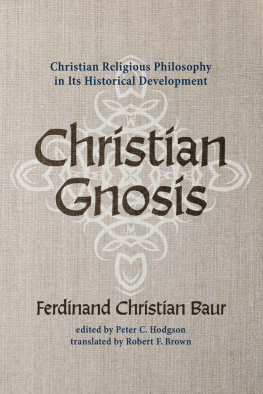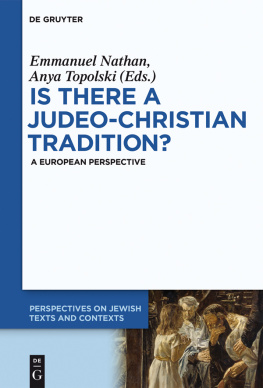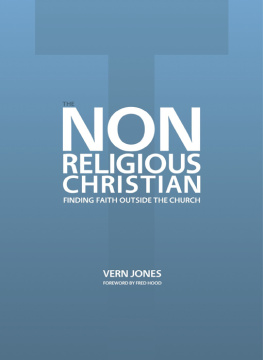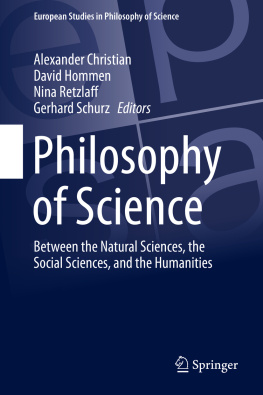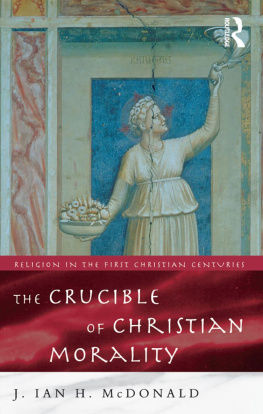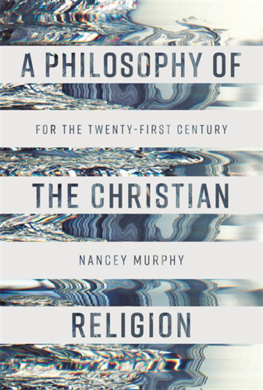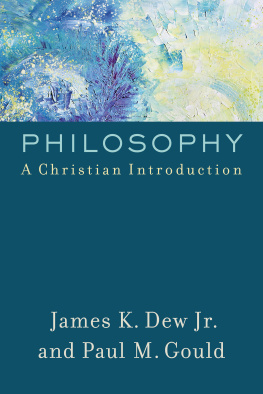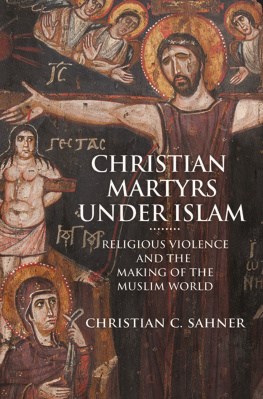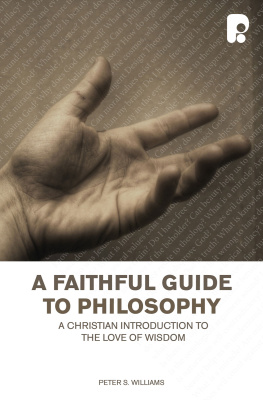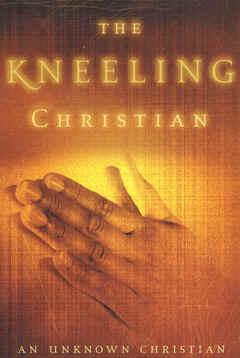Ferdinand Christian Baur - Christian Gnosis: Christian Religious Philosophy in Its Historical Development
Here you can read online Ferdinand Christian Baur - Christian Gnosis: Christian Religious Philosophy in Its Historical Development full text of the book (entire story) in english for free. Download pdf and epub, get meaning, cover and reviews about this ebook. year: 2020, publisher: Cascade Books, genre: Religion. Description of the work, (preface) as well as reviews are available. Best literature library LitArk.com created for fans of good reading and offers a wide selection of genres:
Romance novel
Science fiction
Adventure
Detective
Science
History
Home and family
Prose
Art
Politics
Computer
Non-fiction
Religion
Business
Children
Humor
Choose a favorite category and find really read worthwhile books. Enjoy immersion in the world of imagination, feel the emotions of the characters or learn something new for yourself, make an fascinating discovery.
- Book:Christian Gnosis: Christian Religious Philosophy in Its Historical Development
- Author:
- Publisher:Cascade Books
- Genre:
- Year:2020
- Rating:4 / 5
- Favourites:Add to favourites
- Your mark:
- 80
- 1
- 2
- 3
- 4
- 5
Christian Gnosis: Christian Religious Philosophy in Its Historical Development: summary, description and annotation
We offer to read an annotation, description, summary or preface (depends on what the author of the book "Christian Gnosis: Christian Religious Philosophy in Its Historical Development" wrote himself). If you haven't found the necessary information about the book — write in the comments, we will try to find it.
Christian Gnosis: Christian Religious Philosophy in Its Historical Development — read online for free the complete book (whole text) full work
Below is the text of the book, divided by pages. System saving the place of the last page read, allows you to conveniently read the book "Christian Gnosis: Christian Religious Philosophy in Its Historical Development" online for free, without having to search again every time where you left off. Put a bookmark, and you can go to the page where you finished reading at any time.
Font size:
Interval:
Bookmark:
Christian Religious Philosophy in Its Historical Development
Ferdinand Christian Baur
Edited by Peter C. Hodgson
Translated by Robert F. Brown
Translation of Ferdinand Christian Baur, Die christliche Gnosis oder die christliche Religions-Philosophie in ihrer geschichtlichen Entwiklung . Tbingen: C. F. Osiander, 1835 .

CHRISTIAN GNOSIS
Christian Religious Philosophy in Its Historical Development
Copyright 2020 Peter C. Hodgson and Robert F. Brown. All rights reserved. Except for brief quotations in critical publications or reviews, no part of this book may be reproduced in any manner without prior written permission from the publisher. Write: Permissions, Wipf and Stock Publishers, W. th Ave., Suite , Eugene, OR 97401 .
Cascade Books
An Imprint of Wipf and Stock Publishers
W. th Ave., Suite
Eugene, OR 97401
www.wipfandstock.com
paperback isbn: 978-1-5326-7739-7
hardcover isbn: 978-1-5326-7740-3
ebook isbn: 978-1-5326-7741-0
Cataloguing-in-Publication data:
Names: Baur, Ferdinand Christian, author. | Hodgson, Peter C., editor. | Robert F. Brown, translator.
Christian gnosis : Christian religious philosophy in its historical development / Ferdinand
Christian Baur ; edited by Peter C. Hodgson ; translated by Robert F. Brown.
Description: Eugene, OR: Cascade Books, 2020. | Includes bibliographical references and indexes.
Translation of Die christliche Gnosis oder die christliche Religions-Philosophie in ihrer
geschichtlichen Entwiklung.
Identifiers: isbn 978-1-5326-7739-7 ( paperback ). | isbn 978-1-5326-7740-3 ( hardcover ). | isbn 978-1-5326-7741-0 ( ebook ).
Subjects: LCSH: Gnosticism. | Theology, DoctrinalHistoryEarly church, ca. 30-600 .|
Christianity. | ReligionPhilosophy.
Classification: BT1390 B38 2020 ( print ). | BT1390 ( ebook ).
Manufactured in the U.S.A. June 18, 2020
B aurs Die christliche Gnosis appeared from the same publisher (Osiander in Tbingen), and at the same time (June 1835 ), as David Friedrich Strausss Das Leben Jesu, kritisch gearbeitet . completely eclipsed his teachers monumental study, and only gradually has it come out of the shadows and received the recognition it deserves. Baur published another book in 1835 , Die sogennanten Pastoralbriefe des Apostels Paulus , which was as revolutionary in Pauline studies as Die christliche Gnosis was in the history and philosophy of religion. It demonstrated that Paul could not have been the author of the epistles to Timothy and Titus, and it anticipated Baurs later conclusion that only four epistles (Galatians, and Corinthians, and Romans) can be regarded as assuredly written by Paul.
Baurs interest in Gnosticism arose from his early studies in the history of religions, specifically his inaugural dissertation of 1827 , which examined the idea of Christian Gnosticism and compared it with Schleiermachers theology, and his 1831 monograph on the Manichean religious system. The German text of Gnosis contains a number of flawstypesetting mistakes, erroneous citations of primary sources, and the likethat are not recognized in the Errata at the end of the volume. The translation silently corrects these flaws wherever they were noticed, but has not attempted to verify the accuracy of Baurs citations of pagination in the secondary sources he discusses.
The work as a whole has an uneven quality. The section on Boehme (the least helpful part of the book) is largely a string of long quotations interspersed with brief interpretative comments. This is true of other sections as well, but to a lesser extent. Baur often directly quotes his sources, noting them but sometimes without providing quotation marks, a common practice at the time. His method of citations is erratic. Sometimes he uses footnotes, but at other times sources are indicated in-text. Sometimes he provides publication information, other times not. We have attempted to make the notation style more uniform and to provide more complete bibliographic information. Interspersed with Baurs notes are quite a few editorial notes, designated as [ Ed. ]. Brief editorial insertions are marked by square brackets, or in some instances italics. We have referred to existing English translations of ancient texts, using the abbreviations ANF to designate The Ante-Nicene Fathers and LCL to designate the Loeb Classical Library. There are a few major headings in the text itself, but Baur introduced detailed headings into the table of contents. Some of these are sentences rather than normal headings. We have put all these headings into the text and have broken up the long paragraphs, which often run for several pages without a break. Baur sometimes adds lengthy footnotes in or near the end of a section, as though he has thought of more that needs to be said, and he even provides additions through the Index and the Errata. The work has the feel at some points of being made up as it goes along. In its original form it is difficult to read, and unfortunately a critical German edition of it has never been published.
Despite all of this, Die christliche Gnosis is a brilliant book and a true tour de force. It reveals Baurs remarkable grasp of the history of religions, the history of Christianity, the philosophy of religion, and philosophical theology, ranging from ancient sources to the nineteenth century. This range is a hallmark of all his scholarship, and it is first revealed here. Despite a few earlier works, Die christliche Gnosis is Baurs first major scholarly presentation, and his first major engagement with the modern thinkers who deeply influenced him, Schelling, Schleiermacher, and especially Hegel. Hegel was the most recent, Baur having assimilated his ideas very quickly after the posthumous publication of Hegels Lectures on the Philosophy of Religion in 1832 . For these reasons, this book is foundational for Baur studies.
The word gnosis is written the same way in Greek, German, and English, and simply means knowledge, especially religious knowledge or (esoteric) knowledge of spiritual truth. Knowledge in English comes from the same Indo-European root as gnosis , namely n . We capitalize the term in this translation because Baur uses it to refer not only to the concept of Gnosis but also to the movement known as Gnosticism (for which he also employs the term Gnosticismus ). The more customary term for knowledge in German is Wissen , which (along with English wise and wisdom) derives from a different root. Wissen forms the basis for Wissenschaft , which means scientific or scholarly knowledge. In Baurs day academic theology was regarded as a Wissenschaft , along with other human sciences ( Geisteswissenschaften ). Writing about the goal of Gnosis as clear self-consciousness (in the section on the Pseudo-Clementines), Baur says that Gnostic systems assumed an identity between being and knowing such that being can only be for knowing, that it can only be being as thought and known.
As the subtitle of Baurs book indicates, his usage of the term Gnosis goes beyond ancient Gnosis to designate the concept of Christian religious philosophy ( christliche Religionsphilosophie ) in its historical development. The term Religionsphilosophie poses a problem for translators. On the one hand it can refer to philosophy of religion in the sense of a philosophical analysis of the concepts and shapes of various religious traditions without the philosopher necessarily sharing any convictions with these traditions other than a recognition of their importance. This is the modus operandi of most current Anglo-American philosophy of religion. On the other hand, the term can apply to the work of a religious believer or sympathizer who uses philosophical concepts and methods to describe and/or construct the belief system of a specific religionChristian religion (and its antecedents) in the case of christliche Religionsphilosophie as well as to defend it against criticism. This practice might be called religious philosophy or philosophical religion or even philosophical theology, and it is the one followed by Baur in this book. He also reads Schelling and Hegel as religious philosophers, and he interprets Schleiermachers Der christliche Glaube ( Christian Faith ) as containing a religio-philosophical aspect because it intends to be a science ( Wissenschaft ) of faith. When Religionsphilosophie occurs in the section on Hegel, we translate it as philosophy of religion because the reference is to what Hegel himself called Philosophie der Religion in his lectures on the topic and elsewhere. These distinctions are of course not hard and fast.
Font size:
Interval:
Bookmark:
Similar books «Christian Gnosis: Christian Religious Philosophy in Its Historical Development»
Look at similar books to Christian Gnosis: Christian Religious Philosophy in Its Historical Development. We have selected literature similar in name and meaning in the hope of providing readers with more options to find new, interesting, not yet read works.
Discussion, reviews of the book Christian Gnosis: Christian Religious Philosophy in Its Historical Development and just readers' own opinions. Leave your comments, write what you think about the work, its meaning or the main characters. Specify what exactly you liked and what you didn't like, and why you think so.

